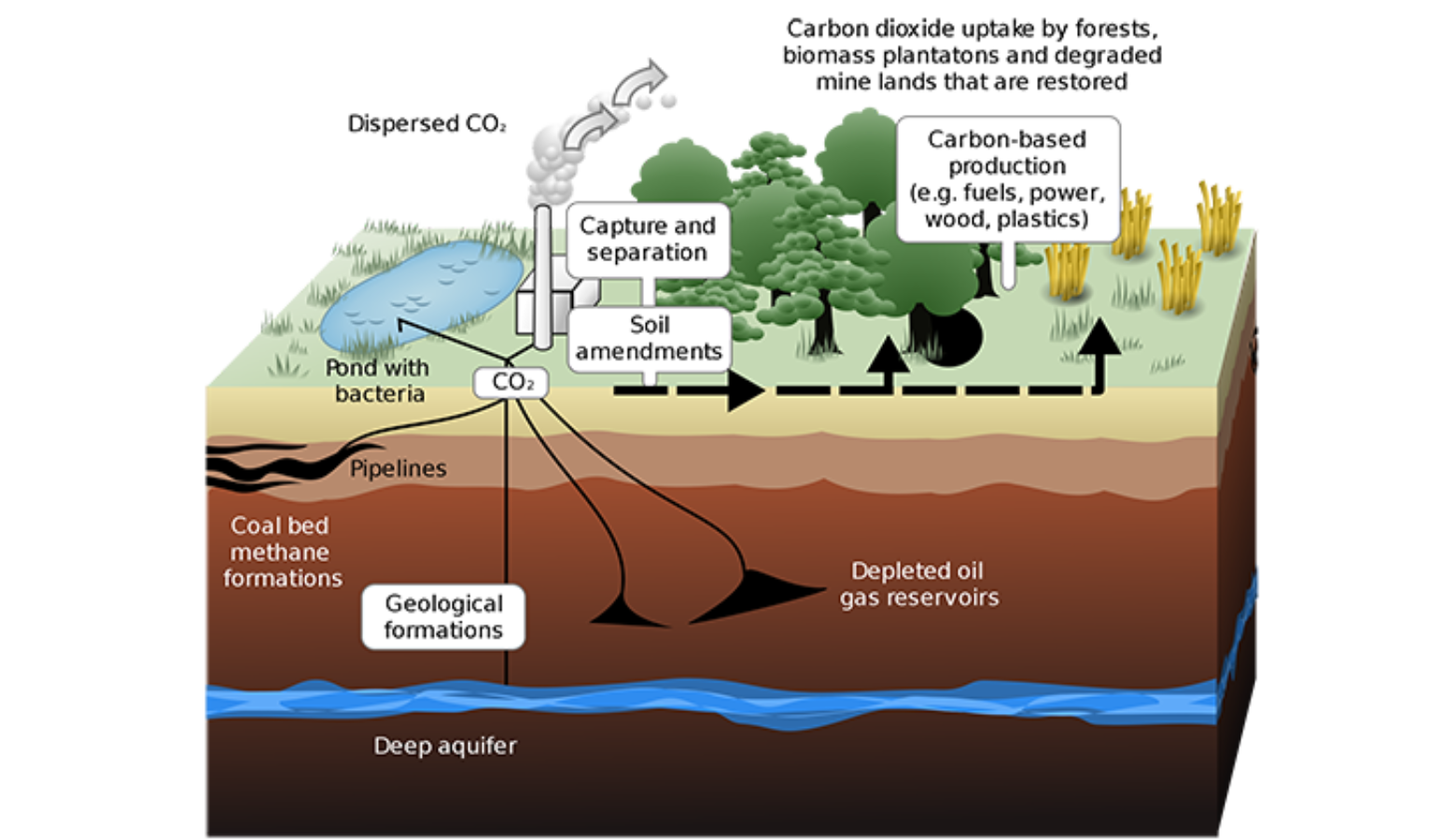CO2 storage bill would make Indiana liable for long-term risks

A state House bill, HB 1209, would set up a permit program to allow companies that pollute to capture carbon emissions and store them underground. That could create opportunities for companies to offset their emissions and possibly receive federal funding from the Biden administration.
Right now, the state has only approved one company to store its emissions underground. But after nearly three years, the pilot project with Wabash Valley Resources LLC in Terre Haute still hasn’t moved forward.
Damian Bilbao is the vice president of U.S. business development for BP. He said the bill would allow other industries to invest in carbon capture and storage or CCS.
“So a large CCS project in northwest Indiana, we believe, could effectively reduce the emissions of the state on a net basis by twice the amount of the state capitol,” he said.
Among other things, the bill would require companies to get permission from owners of 60 percent of the land area and compensate those who don’t consent. Those property owners wouldn’t be allowed to sue for punitive damages as long as the company complies with its permit.
READ MORE: Amendment would waive liability for company in pilot program on CO2 storage
Join the conversation and sign up for the Indiana Two-Way. Text “Indiana” to 73224. Your comments and questions in response to our weekly text help us find the answers you need on statewide issues.
Some environmental advocates say underground carbon storage has the potential to contaminate drinking water or cause earthquakes.
Most importantly, Shannon Anderson with Earth Charter Indiana said it doesn’t address emissions at the source. She said, when a pipe breaks in your home, you don’t grab a mop first — you turn off the water.
“Many proposed sequestration projects feel precisely like this — a mop when we need to stop significant emissions at the source. And I would be interested in taking up the issue of investing in CO2 pipelines and infrastructure if we’d even begun to have the conversation about primary emission reductions,” Anderson said.
Companies would also have to pay into a trust fund that goes to the long-term monitoring and maintenance of the stored emissions. After a carbon storage facility is closed for 10 years, the Indiana Department of Natural Resources would take ownership of it — but the agency isn’t comfortable with that.
“Our concerns lie with the potential long-term liability associated with these projects and believe that the operators who enter this market should remain liable for potential damages that may occur post-injection,” said Caitlin Smith, the DNR’s legislative and public policy director.
Smith said the agency also doesn’t have the staff to vet carbon storage applications and would like to see how the state’s pilot project operates first.
Wabash Valley Resources said it needs legislation to protect it from nuisance lawsuits from property owners before the project can move forward. The bill HB 1249 would do just that. It’s been re-introduced in the House this year. Both of bills passed out of committee on Tuesday.
Contact reporter Rebecca at rthiele@iu.edu or follow her on Twitter at @beckythiele.
Indiana Environmental reporting is supported by the Environmental Resilience Institute, an Indiana University Grand Challenge project developing Indiana-specific projections and informed responses to problems of environmental change.


